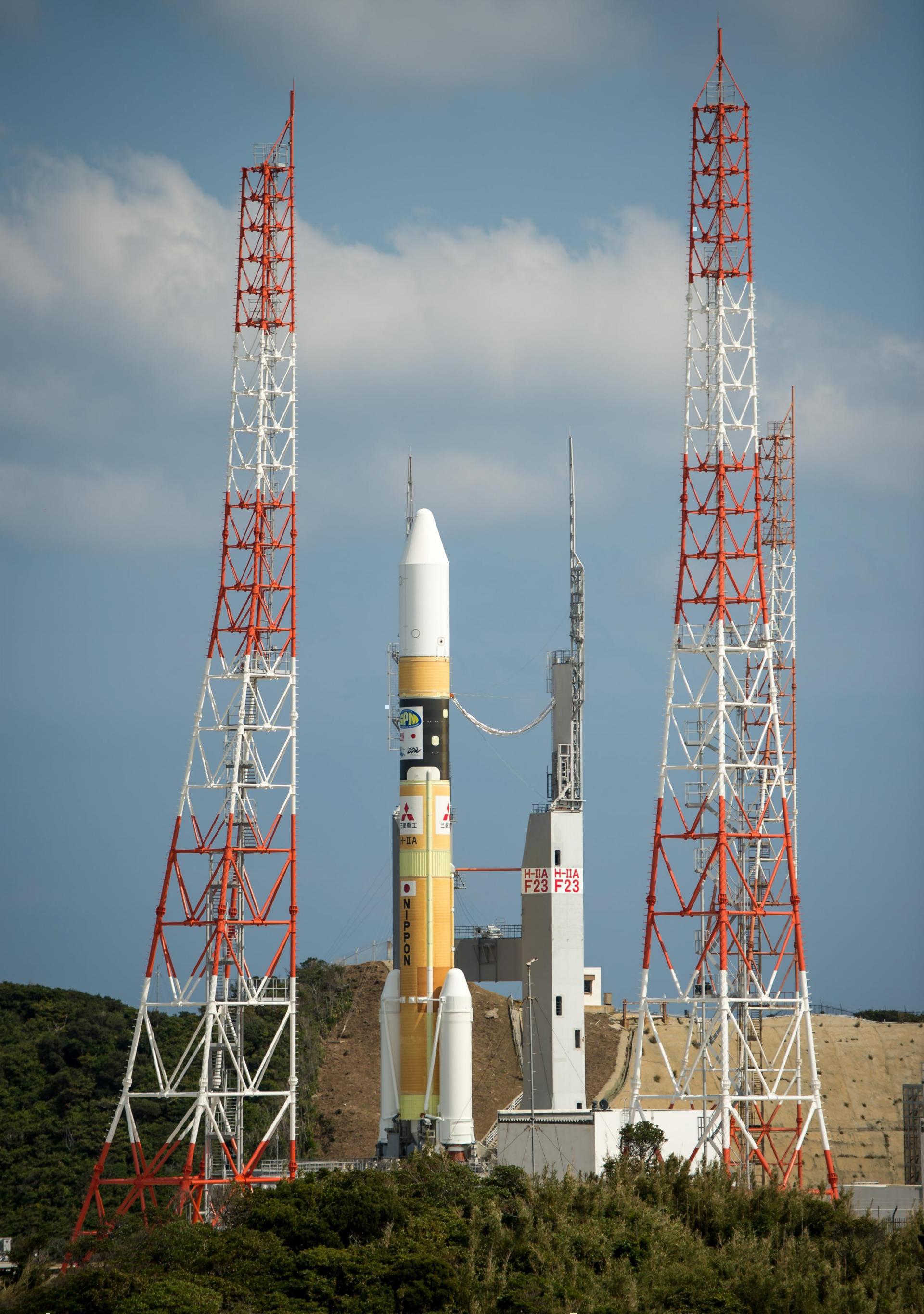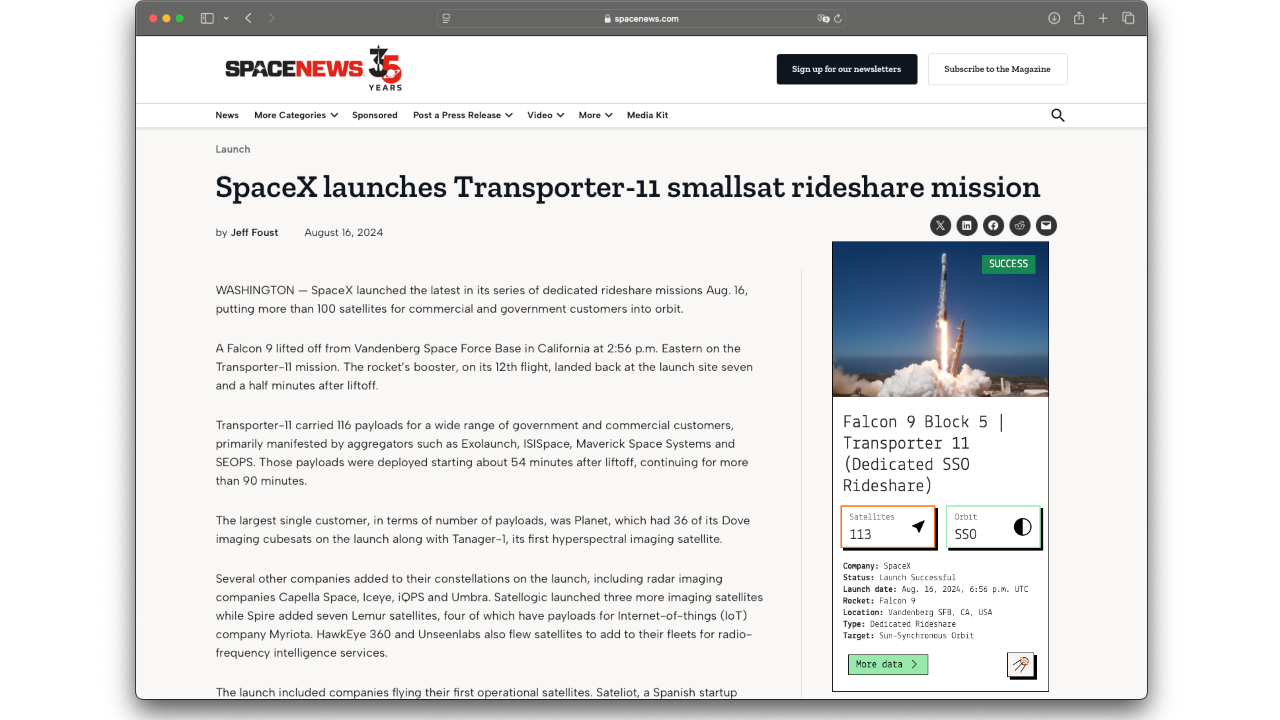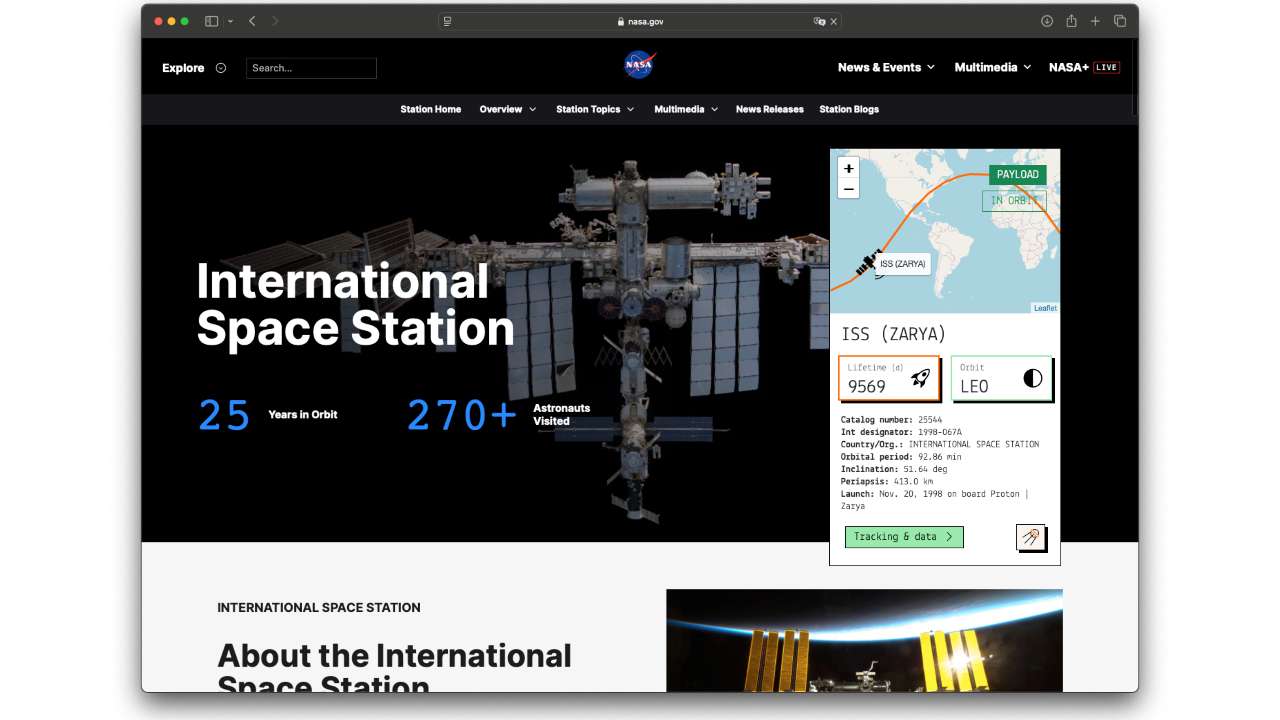Key statistics
Satellite STARS-AO at a glance.
Uptime
2602
Days in orbit
Revolutions
≈ 15.1
Per day
Orbit
SSO
Sun Synchronous Orbit
Inclination
98.1
Latest
Satellite identification and parameters
Extended collection of information and parameters for STARS-AO.
Object identification
Identified? True
Debris? False
Object name: STARS-AO
International designator: 2018-084J
Object number (NORAD): 43679
Object ID (CCSDS): 43679
Country: JAPAN (JPN)
Current information (Y/N): Y
RCS size: SMALL
Orbital parameters
Period: 95.097 minutes
Inclination: 98.0638 deg
SMA: 6901.409 km
Apoapsis: 525.751 km
Periapsis: 520.796 km
RAAN: 183.6261 deg
Eccentricy: 0.00035899
Argument of periapsis: 82.3605 deg
Mean anomaly: 277.8033 deg
Mean motion: 15.14244933 rev/day
Mean motion (dot): 0.0001075 rev/day2
B* drag term: 0.00059160419 1/REarth
Two-line elements (TLE)
Creation date: Dec. 12, 2025, 10:14 a.m.
Reference frame: TEME
Reference center: EARTH
Epoch: Dec. 12, 2025, 1:23 a.m. UTC
TLE line 0: 0 STARS-AO
TLE line 1: 1 43679U 18084J 25346.05827107 .00010750 00000-0 59160-3 0 9997
TLE line 2: 2 43679 98.0638 183.6261 0003590 82.3605 277.8033 15.14244933389122
Live tracking on map
Real-time ground track for satellite STARS-AO.
In-orbit conjunctions
There are no conjunctions computed for STARS-AO, at the moment. Check back to stay up to date, as we update our databases every day.
Go to all conjunctionsAssociated space launch
KhalifaSat is an Earth observation satellite for UAE. KhalifaSat will provide high-resolution imagery of Earth to be used for various purposes, including urban planning, change monitoring, area classification, monitoring environmental change and aiding relief efforts for natural disasters. GOSAT 2 (Greenhouse gases Observing SATellite 2) is a Japanese satellite dedicated to greenhouse gas measurement from space. It's a follow on to the GOSAT mission and includes such improvements as an ability to gather more precise data and monitor carbon monoxide concentrations.
STARS-AO was lifted into orbit during the mission ‘H-IIA 202 | KhalifaSat & GOSAT-2’, on board a H-IIA space rocket.
The launch took place on Oct. 29, 2018, 4:08 a.m. from Yoshinobu Launch Complex LP-1.
For more information about the launch, click the button.

H-IIA 202 | KhalifaSat & GOSAT-2
Agency: N/A
Status: Launch Successful
Launch date: Oct. 29, 2018, 4:08 a.m. UTC
Rocket: H-IIA
Launch pad: Yoshinobu Launch Complex LP-1
Location: Tanegashima Space Center, Japan
...
Latest news about this satellite

Newsletter sign-up
Weekly statistics, charts and insights to help you stay on top of the space industry.




